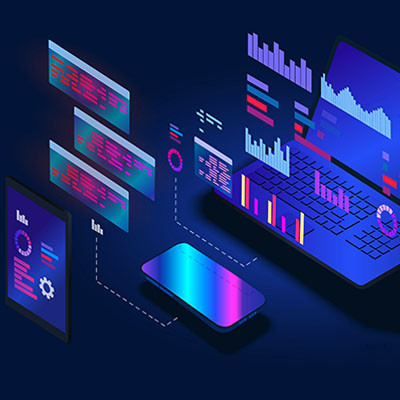Software makes business run: that is an undeniable statement. From the operations software that allows your business to manage and pay its people to the CRM that provides a pathway to communicate efficiently with customers, to all of the applications that it takes to conduct business in earnest, software plays a crucial role in your business’ success.
A lot of software is developed for business purposes, but very few are developed with the small business in mind. This is logical because the more licenses of a software can be sold, the more money the developer will make. More than that, the software developed for use by a large organization will have the features that can help an organization cover more ground.
Some of the differences between the two include:
- Audience - Obviously, enterprise software is developed for a large organization to be deployed by one. Since most large companies have a hierarchical structure, the software that is developed for them is going to address the needs of the groups involved.
- Options - The software that is built for enterprise business will need to have more options than a stand-alone application will.
- Storage - Since enterprise software is dealing with a lot of sensitive data, alternative storage considerations have to be made. Today, more and more businesses are utilizing cloud computing because of the flexible amount of storage that is available. Enterprise businesses can scale up and back without having to count every penny, a luxury many small organizations don’t have.
- Different process - While the creation of software is relatively the same, enterprise software carries with it a lot of customization as it needs to fix specific problems the enterprise has. This whole process includes integration and interoperability that is necessary to be a viable solution for enterprise business.
- Scalability - Any good business expects some semblance of growth or redirection of company objectives. In software, that means being able to scale to the new reality of a business quickly. It’s the only way for the seamless operations and thorough reporting that enterprise demands.
Using Enterprise Software for an SMB
This is where the whole thing gets tricky for the small business. Do you purchase an enterprise-level software and parse it down to fit your needs; or, do you make due with the consumer versions of the software needed?
It depends on a few factors:
- If you plan on deploying software in the cloud, you may be able to get the best version of a software and kind of make it fit your business. Typically, these massive software platforms like Professional Services Automation (PSA) or Enterprise Resource Planning (ERP) have all the functions that your SMB needs.
- You need to consider the cost. What is the cost to purchase the software, the licenses, the underlying hardware needed to run it, and all the other considerations that go into making technology decisions for your business.
- The differences between enterprise software and regular software may be noticeable but they are shrinking. Most organizations that use Software as a Service (SaaS) platforms are getting robust software as part of their monthly agreement.
While a smaller business might not want to overspend or get something that is overkill, there are long term benefits in being able to grow and scale into more robust options instead of fumbling along and upgrading when you can’t take it anymore. Software is important so having the perspective of experienced IT professionals can help you get the tools your business needs to be successful. Give us a call today at (404) 800-7946.



